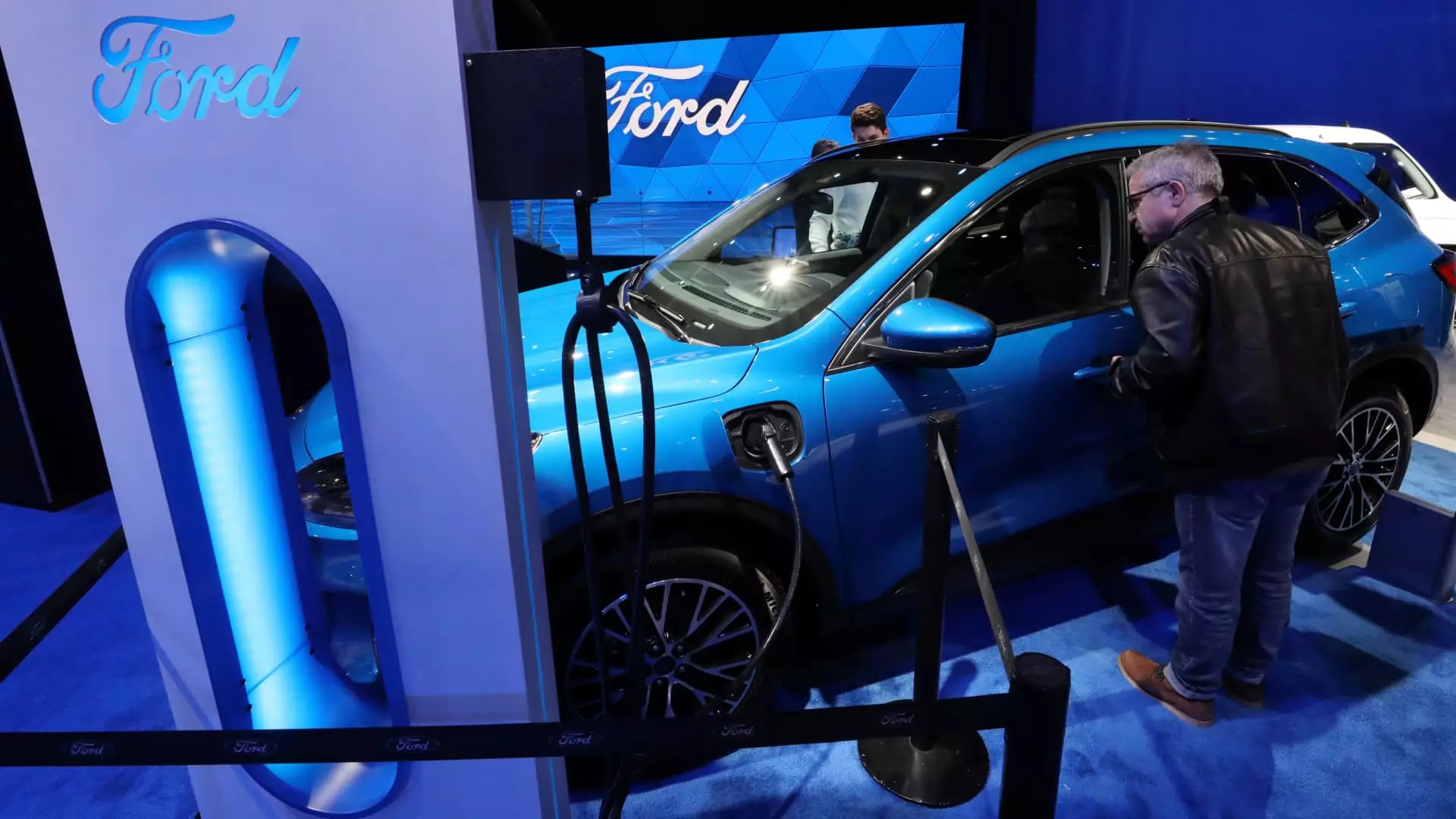Ford Motor has announced delays in the production of a new all-electric large SUV and pickup truck, with a shift towards offering hybrid options across its entire North American lineup by 2030. Originally planned for 2025, the production of the three-row SUV at a plant in Canada has been postponed to 2027. Similarly, the next-generation pickup codenamed “T3” has been pushed back from late 2025 to 2026. The decisions come as the automotive industry faces slower than expected EV adoption rates and high production costs.
Last year, Ford decided to delay or cancel $12 billion in planned spending on new EVs due to changing market conditions and profitability challenges. Despite being the second-ranked EV brand in terms of sales in the U.S., Ford has faced stiff competition from Tesla and Hyundai, including Kia and Genesis, both of which outsold Ford in the EV market. This has prompted Ford to rethink its EV strategy and tread carefully in the evolving market.
Ford remains committed to investing in EVs and scaling a profitable EV business. The company is focusing on bringing the right gas, hybrid, and fully electric vehicles to market at the right time. The decision to delay production of the three-row SUV and pickup truck is aimed at allowing the consumer market for EVs to further develop and take advantage of emerging battery technology. This, in turn, will provide customers with increased durability and better value in the long run.
Ford plans to continue its EV efforts by focusing on new plants like the “BlueOval City” campus in Tennessee, rather than transitioning current facilities from producing engine-powered vehicles to all-electric models. The company’s next-generation EVs will be built from the ground up and fully software-enabled, offering improved digital experiences and a range of potential services. Construction of battery plants in Michigan, Tennessee, and Kentucky is ongoing, with the massive Tennessee facility set to begin production of Ford’s next-generation all-electric truck in 2026.
In the first quarter of 2024, Ford saw an 86% increase in electric vehicle sales compared to the previous year. Hybrid sales rose by 42%, while sales of traditional vehicles with internal combustion engines were up by 2.6%. However, Ford’s “Model e” electric vehicle business reported losses of $4.7 billion in 2023, including $1.57 billion in the fourth quarter. The automaker anticipates further losses in 2024 in the range of $5 billion to $5.5 billion.
Ford’s decision to delay production of its all-electric SUV and pickup truck reflects the challenges and uncertainties facing the EV market. By focusing on emerging battery technology and strategically investing in new EV plants, the company is positioning itself for long-term success in the evolving automotive landscape. Ford’s commitment to scalability and profitability in its EV business will be critical in driving future growth and maintaining competitiveness in the industry.

